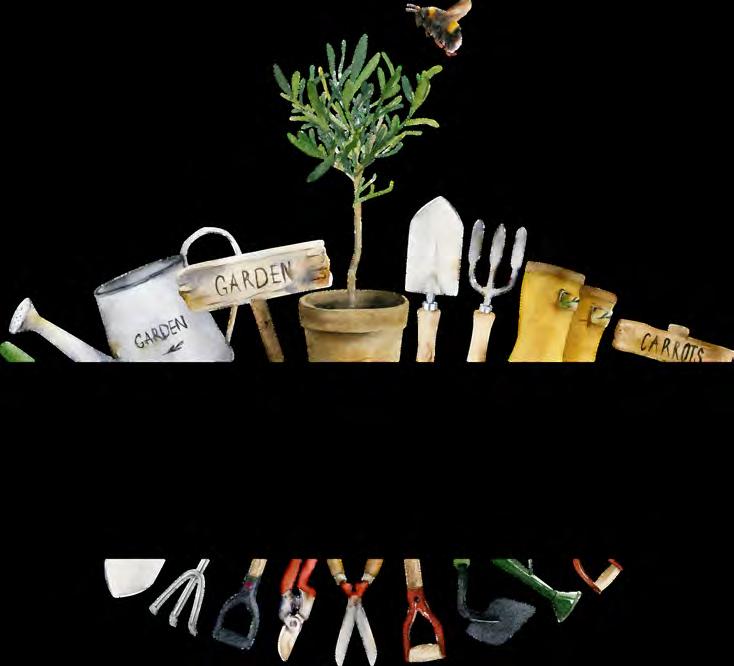
4 minute read
Biden pledges support for salmon recovery
Brigham, Hall attend White House Conservation in Action Summit
By Eric Barker/Lewiston Tribune

President Joe Biden pledged March 23 to work with Rep. Mike Simpson of Idaho and Sens. Patty Murray and Maria Cantwell of Washington to restore Snake and Columbia river salmon runs.
Biden was speaking at a White House Conservation in Action Summit attended by leaders of the Nez Perce Tribe in which he announced several high-level conservation initiatives including his use of the Antiquities Act to establish national monuments in Nevada and Texas and an ocean preserve near Hawaii.

Kat Brigham, Chair of the Board of Trustees for the Confederaed Tribes of the Umatilla Indian Reservation, and Brent Hall, attorney under CTUIR contract, attended the Summit.
The president didn’t provide specifics on how he hopes to help recovery of the runs.
Salmon fishing is central to the culture and economy of Northwest tribes. Its 1855 treaty with the U.S. government reserves the right of its members to fish for salmon in “usual and accustomed places.”

But wild Snake River salmon and steelhead are protected under the Endangered Species Act. For more than two decades the tribe has advocated breaching the four lower Snake River dams that impede the migration of juvenile and adult salmon and steelhead as they move between spawning grounds in Idaho, Washington and Oregon and the Pacific Ocean.
The tribes have also been key players in a long-running court case pitting it, Oregon and fishing and conservation groups against the federal government over its efforts to balance the needs of the fish with operation of dams on the Snake and Columbia rivers.
For more than a year, the parties to that litigation have participated in closed-door mediation in an attempt to forge a durable solution to the problems facing salmon and steelhead. The Biden administration has not backed dam breaching, but under its leadership, the federal government has been more open to the idea that was once ridiculed. Breaching would help the fish but it would end tug-andbarge transportation of crops like wheat between Lewiston and downriver ports and eliminate hydroelectric generation at the dams, complicating the region’s effort to decarbonize its energy system.
Two years ago, Rep. Simpson, of Idaho’s 2nd Congressional District, released a $33.5 billion plan that would breach the dams and invest in affected communities and industries across the Northwest. The concept, that is not legislation, has not gained traction with other members of Congress and some, like Reps. Russ Fulcher of Idaho and Cathy McMorris Rodgers of eastern Washington are bitterly opposed to the idea. But it was endorsed by the Nez Perce and other tribes, who continued to lobby for it.
Washington Gov. Jay Inslee and Sen. Patty Murray spent more than a year studying breaching before saying it would help the fish but is not feasible until services provided by the dams — transportation and hydroelectric power generation — are replaced.
Last year, a draft report from NOAA Fisheries said wild Snake River salmon and steelhead cannot be recovered to harvestable levels without dam breaching.
Biden highlighted several conservation initiatives at the summit, including those aimed at fighting climate change, protecting wildlife migration corridors and modernizing public land management.
“This matters because when we conserve our country’s natural gifts, we’re not just protecting the livelihoods of people who depend on them, like the family farms, outdoor recreation businesses and rural communities welcoming visitors from all across the country and around the world for that matter. We’re protecting the heart and the soul of our national pride. We are protecting pieces of history, telling our story that will be told for generations upon generations to come.”
Tribes, agencies to share $500K in settlement to restore Seattle’s Lower Duwamish River
SEATTLE - A logistics company and several of its affiliates agreed to pay more than a half-million dollars to two Washington tribes and several government entities as part of a consent decree lodged by the Department of Justice earlier this year.
Lyden Inc. and its affiliates will pay $556,250 to a group of trustees that includes the Muckleshoot Indian Tribe, the Suquamish Indian Tribe, the state of Washington and the U.S. government. The settlement funds will be used to restore the habitat along Seattle’s Lower Duwamish River, which was “injured” by releases of hazardous substances and oil, according to a legal filing in federal court in Seattle. Bottom of Form
“The Lower Duwamish River, which flows into Elliott Bay, has been subject to considerable levels of industrial and other uses by numerous parties throughout its history and into the present,” the filing says. “These contaminants have had serious impacts on the aquatic organisms and other natural resources that inhabit, or come into contact with, contaminated sediments or eat contaminated prey.”
A ccording to the court filing, the defendants’ business operations resulted in releases of hazardous substances, including but not limited to, polycyclic aromatic hydrocarbons

(PAHs), tributyltin, bis(2-ethylhexyl) phthalate, and phenol to the Duwamish River. PAHs are a class of chemicals that occur naturally in coal, crude oil, and gasoline, according to the Centers for Disease Control. The most significant endpoint of PAH toxicity is cancer, according to the A gency for Toxic Substances and Disease Registry.
The plaintiffs in the legal action include the U.S. National Oceanic and Atmospheric Administration (NOAA), the U.S. Department of Interior, the state of Washington’s Department of Ecology, and the two tribes.

The defendants in the legal action include Lynden, Knik Construction Co., Douglas Management Co., Alaska Marine Lines Inc., Swan Bay Holdings Inc., Bering Marine Corp., LTI, Inc., Lynden Transport, Inc. and three limited liability companies.
The Environmental Protection Agency (EPA) declared the Lower Duwamish Waterway a “Superfund” site in 2001. Known by the agency as the Lower Duwamish Waterway Superfund site, it’s eligible for a special federal cleanup program funded by the Comprehensive Environmental Response, Compensation, and Liability Act (“CERCLA”) because of the identified severity of contamination. Superfund sites are polluted locations that require a long-term response to clean up hazardous material contaminations.










